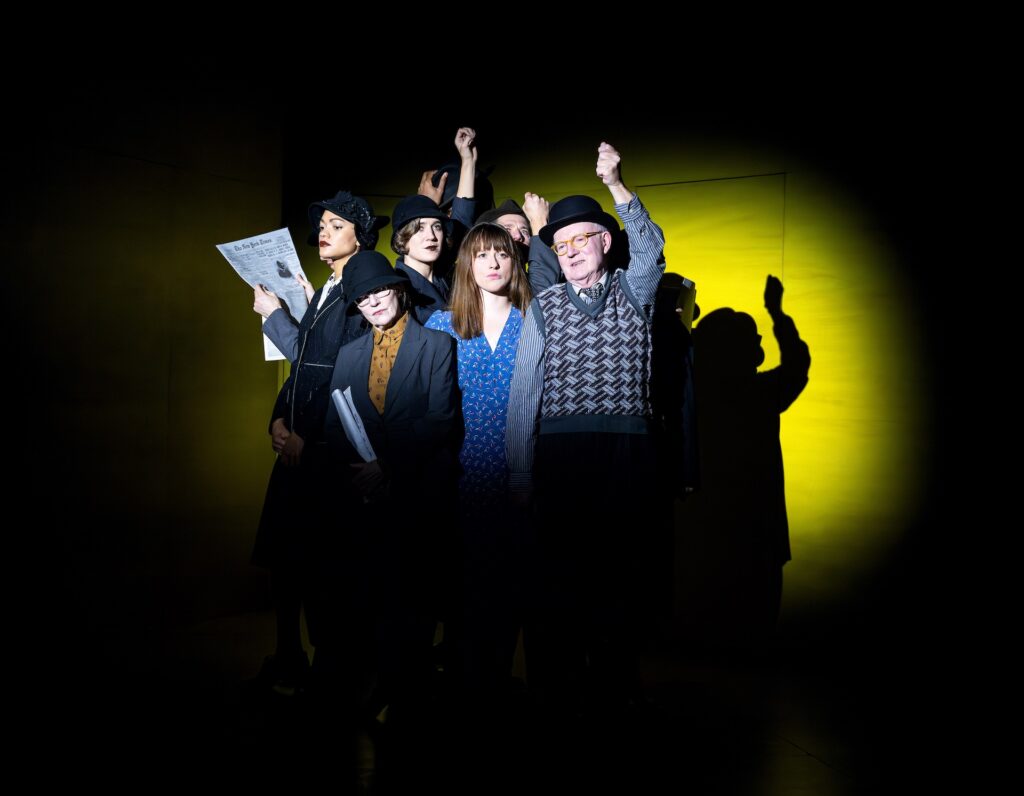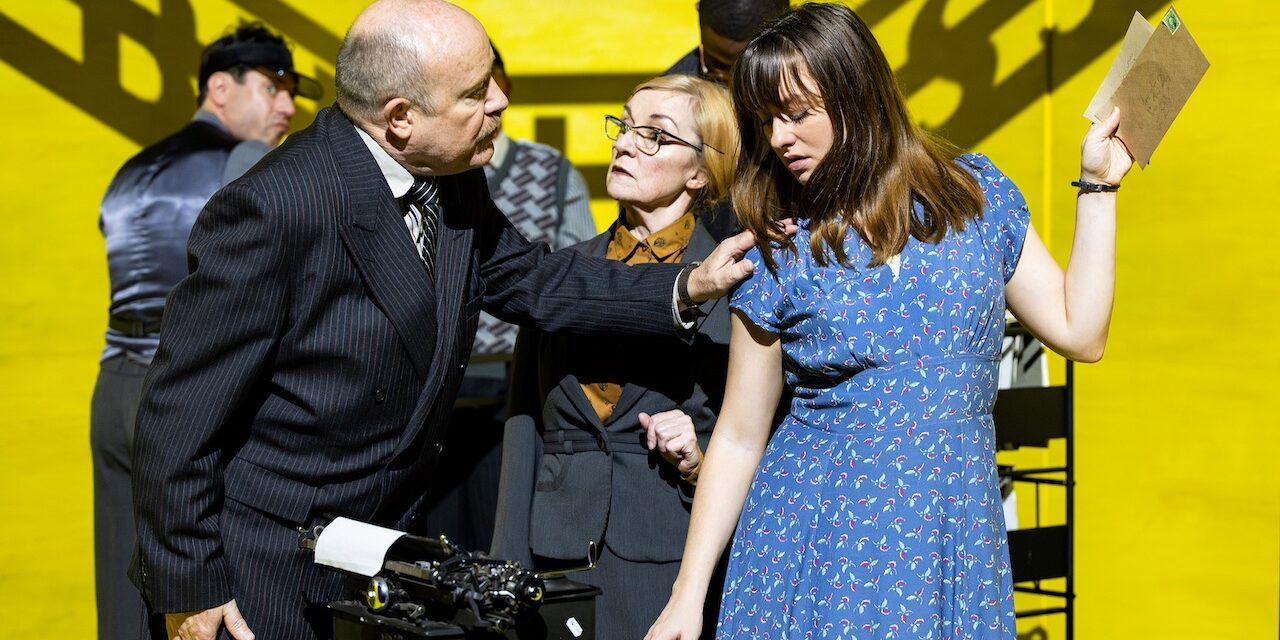
20 October – 18 November
Can this extraordinary play really have premiered as long ago as 1928? Why was it neglected for so long after its sensational Broadway debut? In this superb production, directed with great flair by Richard Jones, Machinal is revealed as a ground-breaking masterpiece that seems startlingly modern. It is as much a play of our time as of the 1920s.
Writer Sophie Treadwell was inspired by the real-life story of Ruth Snyder, executed early in 1928 for the murder of her husband. But Machinal is by no means documentary in form. Instead, conventional ideas of realism give way to an expressionist style that powerfully conveys the tormented inner life of its central character. Her feelings of suffocation, of imprisonment, take on three-dimensional form. This sense of entrapment is reinforced by Hyemi Shin’s set design, where angled blank walls create a severely narrowing space. In a cleverly choreographed first scene we see the nameless Young Woman (Rosie Sheehy) in a swaying subway carriage, pushed, pulled and crushed by her fellow passengers. She panics and must escape. The metaphor is clear. This is an uncompromisingly bleak tale of a young woman who takes desperate measures to escape from the confines of a coldly mechanistic society that offers her no personal freedom. In a memorable performance characterised by vivid emotional expression, Sheehy commands the stage throughout.
Machinal takes the form of a series of separate, sharply defined vignettes, each given its own title (‘At Home’, ‘Honeymoon’, ’Maternal’ etc). After her escape from the subway, there is ‘To Business’ where we see the Young Woman working as a stenographer. Her fellow office workers make repetitious, vacuous remarks in a staccato manner that echoes the hammering of their typewriter keys. The emotionally expressive Young Woman is a misfit here, where the accepted style is one of machine-like insensitivity. She is the only truly human being there, but therein lies her vulnerability.
Under pressure from her emotionally desiccated mother (Buffy Davis – excellent), she marries a cliché-spouting self-satisfied bore of a businessman (Tim Frances – wonderfully tedious) who she finds physically repulsive. When they sit together reading the papers, he focuses on business news, but she reads dramatic, human-interest stories. Tellingly, his paper is uncreased; hers is a crumpled, screwed-up mess. It is only when she encounters a personable young man (Pierro Niel-Mee) in a bar that she begins to truly discover herself, and we discover that she has a name: ‘Helen’. In a tender, passionate love scene entitled ‘Intimate’ there is brief respite from the oppressive clatter of modern life. That clatter features throughout most of Benjamin Grant’s strikingly mechanistic sound design, as when a figure wielding a road drill intrudes upon the maternity ward where the Young Woman has given birth. New life is thus greeted by a deafening machine. The only other peaceful moment occurs near the end, when a young condemned prisoner (Daniel Bowerbank) sings a beautiful song of spiritual freedom.
A heartfelt rage against the ‘mechanisms’ of social convention, Machinal is an impassioned cry in favour of warm-blooded, uninhibited humanity. In this outstanding production, that cry is given powerful voice. Magnificent.
★★★★★ Mike Whitton, 31st October, 2023
.
Photo credit: Fonteini Christophofilopoulou


